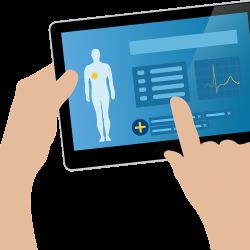Sold as a panacea but delivered to physicians as a glorified billing platform that erodes the doctor-patient relationship and adds yet another layer of third party prioritizing away from these key stakeholders, the electronic medical record (EMR) has not lived up to the dream. Issues with interoperability still abound further fragmenting care. Usability and safety challenges are prevalent, most recently shown in a study to contribute to more than one-third of medication errors in children (see here). Add that to the list. The frustration from their cumbersome nature and routine impediment to patient care has surged job dissatisfaction among health professionals becoming the most commonly cited substantial factor in burnout and decisions to leave clinical practice.
The litany of new problems they have created - and old ones they never solved, is long and impactful. That’s not even addressing the unethical way in which they were forcibly thrust upon physicians and patients without their fully informed consent (review here). But, the most insidious consequence is rarely if ever acknowledged.
I was asked recently, “How do doctors remember everything? There is just so much to know.” Without a thought, my immediate response was a visceral, human one. You never forget the patient with the ruptured aneurysm whose family stands vigil at the bedside or the chronic patient with Cystic Fibrosis who toward the end of life lives in the hospital more than he or she lives at home. The stories, the people, their loved ones, their joys, their laughter, their tears all cement in your mind. The party they missed or altered as a result of their condition. The mishap in the airport they had with their medicine. The manner of birth and surroundings inform. The quirky uncle with the similar symptoms that reveals an inheritable condition. The humanity imprints in your memory of their adverse drug reaction or pain - of what is going on clinically and socially at the time of a status change.
Stories and storytelling is not arbitrary in medicine. Efficiencies in computerized information acquisition through box checking does not leave as lasting an impression in the mind. It doesn’t punctuate an account. When you see your first patient with pancreatic cancer, you don’t forget that experience. You remember drug names, dosages and durations. You fine tune even the tiniest relief systems that get paid forward to future patients. EMRs don’t permit what is most important to being the diagnostic detective necessary to identify, fix or manage the problem. Open-ended questions beget more detail, they spur patient’s memory and challenge what they assume is irrelevant since not directly addressed from predetermined box checking lists or arrival paperwork.
The doctor-patient relationship depends on such dynamic discussion to treat disease. To develop trust and a rapport - essential for a positive chain reaction of events as opposed to the alternative. To navigate the changing landscape of illness. The comprehensive healthcare data riddled throughout individual stories that expand the dialogue and exchange cannot be outsourced by an EMR. The method of data collection via EMR does not enhance retention in any real way by comparison.
Streamlining patients does not serve their best interest. Not in prevention. Diagnosis or therapy. Only the boundless, free exchange of conversation fills in the historical gaps necessary for optimal treatment. Health professionals memory is not best served by mindless systems that marginalize relevant patient data.
Words matter in medicine. Not just in templates, but when given life. Only then, can their meaning have the most value. For patient survival and medical training.
Old-fashioned communication via talking is the truest disruptor today - and the optimal way to prevent adverse events.

